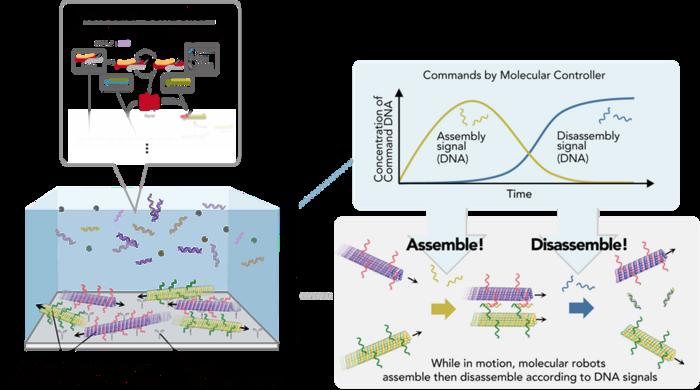Inflammation Predicts Immunotherapy Success in Lung Cancer
The Prognostic Power of Systemic Inflammation in Immunotherapy for Non-Small Cell Lung Cancer: New Meta-Analytical Insights Lung cancer remains a formidable challenge in oncology, ranking as the second most common malignancy worldwide following breast cancer. Among lung cancer subtypes, non-small cell lung cancer (NSCLC) accounts for an overwhelming 85% of cases, overshadowing small cell lung […]


The Prognostic Power of Systemic Inflammation in Immunotherapy for Non-Small Cell Lung Cancer: New Meta-Analytical Insights
Lung cancer remains a formidable challenge in oncology, ranking as the second most common malignancy worldwide following breast cancer. Among lung cancer subtypes, non-small cell lung cancer (NSCLC) accounts for an overwhelming 85% of cases, overshadowing small cell lung cancer’s 15% share. Over the past decade, immunotherapy has revolutionized NSCLC treatment paradigms by improving patient survival. Yet, predicting who will truly benefit from these novel therapies remains a critical unanswered question — one that systemic inflammation biomarkers may help solve.
Recently, a comprehensive systematic review and meta-analysis published in BMC Cancer rigorously evaluated the prognostic and predictive significance of inflammatory markers in NSCLC patients receiving immunotherapy. This analysis synthesized evidence from 17 studies involving diverse cohorts treated with either first-line or second-line immune checkpoint inhibitors. The findings underscore a compelling link between heightened systemic inflammation and diminished overall survival, suggesting these biomarkers could serve as powerful clinical tools.
.adsslot_RY36xeICfp{width:728px !important;height:90px !important;}
@media(max-width:1199px){ .adsslot_RY36xeICfp{width:468px !important;height:60px !important;}
}
@media(max-width:767px){ .adsslot_RY36xeICfp{width:320px !important;height:50px !important;}
}
ADVERTISEMENT
Systemic inflammation reflects the body’s multifaceted immune response, often ignited by tumor progression and the tumor microenvironment. Biomarkers such as neutrophil-to-lymphocyte ratio (NLR), advanced lung cancer inflammation index (ALI), platelet-to-lymphocyte ratio (PLR), C-reactive protein (CRP), and modified Glasgow prognostic score (mGPS) embody the complex interplay of immune activation, suppression, and metabolic changes. These markers, easily derived from routine blood tests, offer accessible snapshots of the inflammatory milieu.
Among these, the neutrophil-to-lymphocyte ratio (NLR) was robustly associated with survival outcomes. Elevated NLR values corresponded with more than double the risk of mortality (hazard ratio [HR] 2.15), lending credence to neutrophil predominance as a harbinger of tumor-promoting inflammation and immune evasion. High NLR may also indicate lymphocyte depletion, reflecting impaired anti-tumor immunity in these patients.
Similarly, the advanced lung cancer inflammation index (ALI), which integrates body mass index, albumin levels, and NLR, demonstrated a strong prognostic link (HR 2.03). This index’s multidimensional nature captures nutritional status alongside systemic inflammation, both critical dimensions influencing treatment responsiveness and survival.
The platelet-to-lymphocyte ratio (PLR) emerged as an even stronger predictor, with a hazard ratio exceeding 4.0. Platelets contribute to tumor progression by fostering angiogenesis and shielding circulating tumor cells from immune detection, hence elevated PLR signals heightened tumor-supportive inflammation.
C-reactive protein (CRP), a classical acute-phase reactant synthesized by the liver in response to inflammatory cytokines, wielded the most profound association, boasting a hazard ratio of 5.37. Elevated CRP levels reflect a pervasive systemic inflammatory state that may accelerate tumor growth and resistance to immune-mediated clearance.
The modified Glasgow prognostic score (mGPS), which combines CRP with serum albumin, also displayed significant prognostic value (HR 3.27), encapsulating both inflammatory and nutritional factors crucial in patient outcomes.
Importantly, these associations were consistent across studies and showed no significant heterogeneity, bolstering confidence in their reproducibility and clinical relevance. Such consistency implies that systemic inflammatory biomarkers could be integrated into routine clinical assessments to stratify NSCLC patients and personalize immunotherapy approaches.
This meta-analysis adhered to rigorous methodological standards, incorporating PRISMA guidelines and the Cochrane Handbook framework, ensuring a systematic and transparent synthesis of existing evidence. Searches spanned major databases including PubMed, Cochrane Library, and Web of Science, capturing studies published until January 2022. By leveraging RevMan software for meta-analytical computations, the researchers derived pooled hazard ratios with precise confidence intervals to quantify prognostic impacts.
Beyond prognostication, the biological implications of these inflammatory markers warrant deeper exploration. The tumor microenvironment’s inflammatory landscape profoundly influences immune checkpoint inhibitor efficacy. Elevated systemic inflammation may mirror an immunosuppressive milieu rife with myeloid-derived suppressor cells and regulatory T cells, undermining cytotoxic T cell function and enabling tumor escape.
Furthermore, systemic inflammation exerts deleterious effects on metabolism and cachexia, compromising patients’ ability to tolerate and respond to immunotherapies. Recognizing these biomarkers could therefore inform adjunct therapeutic strategies aimed at modulating inflammation to amplify immunotherapy benefits.
Clinical implementation of these findings could enhance patient selection for immunotherapy, minimizing exposure to ineffective treatments and associated toxicities. Routine measurement of NLR, PLR, CRP, ALI, and mGPS could serve as cost-effective, non-invasive tools to dynamically monitor disease progression and treatment response.
Future prospective studies are necessary to validate cut-off values and integrate biomarker panels with molecular and imaging data. Such multidimensional predictive models hold promise to refine precision oncology approaches in NSCLC, ultimately improving survival and quality of life.
In conclusion, systemic inflammatory biomarkers harbor independent and significant prognostic and predictive value in NSCLC patients undergoing immunotherapy. This meta-analysis convincingly positions NLR, ALI, PLR, CRP, and mGPS as essential candidates for informing treatment strategies in this challenging disease. By harnessing accessible blood-based markers, clinicians can better navigate the complex immuno-oncological landscape and usher in a new era of personalized lung cancer care.
Subject of Research: Prognostic and predictive value of systemic inflammatory biomarkers in NSCLC patients receiving immunotherapy
Article Title: The prognostic/ predictive value of the systematic inflammatory response in patients receiving immunotherapy for non-small cell lung cancer: a systematic review and meta-analysis
Article References:
Saeed, R., McSorley, S., Cascales, A. et al. The prognostic/ predictive value of the systematic inflammatory response in patients receiving immunotherapy for non-small cell lung cancer: a systematic review and meta-analysis. BMC Cancer 25, 994 (2025). https://doi.org/10.1186/s12885-025-13822-9
Image Credits: Scienmag.com
DOI: https://doi.org/10.1186/s12885-025-13822-9
Tags: advanced lung cancer inflammation index utilityclinical tools for predicting immunotherapy responseimmune checkpoint inhibitors in oncologyimmunotherapy success prediction in NSCLCinflammation and cancer patient outcomesmeta-analysis of inflammatory markers in cancerneutrophil-to-lymphocyte ratio in cancer prognosisnon-small cell lung cancer treatment advancementsoverall survival and inflammation in lung cancerprognostic significance of inflammatory markerssystemic inflammation biomarkers in lung cancertumor microenvironment and immune response
What's Your Reaction?

































